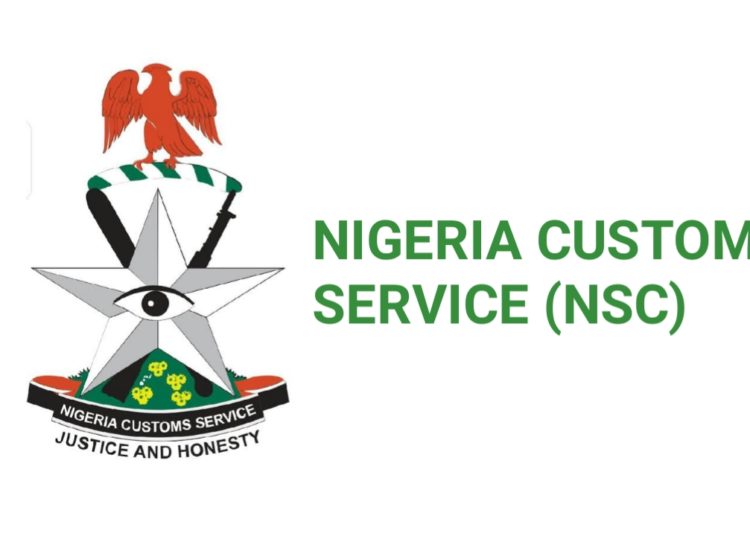Like other sectors in the Nigerian economy, the nation’s seaports have become a cesspool of corruption, a place held captive by an agency established to ensure trade facilitation -the Nigeria Customs Service (NCS), through manual examination of cargoes.
Nigeria, an import dependent economy, has a port system that has defied all efforts at reforms. President Muhammadu Buhari, in a bid to rid the system of corruption and enhance revenue generation, which has over the years been frustrated by the leadership of the NCS, appointed a retired colonel, Hameed Ali to reform the service. Ali seems to have joined the cue, as promises to provide equipment, scanners to solve the problems were never kept. Nigeria is the only port in the world where 100 per cent examination of cargo is done. As against what the NCS wants Nigerians to believe, analysts in the industry believe that 100 per cent examination has never been in the interest of Nigeria.
If that is the case, why do the NCS set up road blocks along port access roads, further heightening the perennial gridlock on those roads to reexamine containers that its officers have cleared out of the port? Why are foreign shipping companies leaving the country empty rather than take export cargoes out of Nigeria? These and many other questions are begging for answers.
For instance, in February 2017, during an inspection tour of the ports in Lagos,
Col. Hameed Alli, promised to end the long wait for cargo scanners to be provided at the ports and guaranteed that scanners would be provided in the first quarter of 2018.
However, while the lack of scanners at the ports is frustrating the government’s ease of doing business orders, some importers are taking advantage of this to make wrong declarations, which poses risk to national security, as dangerous weapons and other contraband goods are smuggled into the country due to lack of digital screening.
Specifically, he had said, “New cargo scanners to arrive in Nigeria next year. The new scanners would arrive the ports by the first quarter of 2018, to make cargo examination easier, faster & surer.”
Responding to stakeholders’ demand for the audit of N9.2 billion scanners at the ports, the CGC had noted that, “After examining the scanners, only two can be immediately repaired and put to use, but the others will be repaired over time.”
At another forum on October 4, 2017, the CGC again promised, saying: “Hopefully, before a couple of months from now, we will have scanners at the ports.”
However, six years after his first promise of introducing scanners to the seaport, none of the acquired scanners have been put to use as the service insists on manual inspection of cargo.
The absence of these equipment has left the maritime business in dire straits as the ports have remained without scanners, causing a clog to the efficiency of the port system.
Maritime stakeholders have rued the absence of mobile and fixed scanners at the ports, saying they are essential equipment for international businesses as it helps in facilitating ease of doing business.
They argued that it aids modern procedures for cargo examination for importation, exportation, security and other purposes.
Unfortunately, this all-important equipment has been absent from the Nigerian ports due to the total breakdown of the previously provided ones while the newly acquired equipment aren’t put into use.
They also believe that the greater consequence is that lack of functional scanners has taken Nigeria away from countries in West and Central Africa seeking to position as operators of modern port system and a hub for maritime activities in the regions.
Maritime expert and a member, Task Force to Reform Customs in 2010, Lucky Amiwero, blames the collapse of scanners at the nation’s ports on the doorsteps of the NCS and the Ministry of Finance (MoF).
According to him, the scanners that have eventually packed up at the seaport now was mismanaged by MoF and Customs because both organisations did not ensure that the equipment were properly transferred to the government after the expiration of the contract tenor of the concessionaires.
Based on the provisions of the contract between the federal government and contractors in 2006, Amiwero explained, the intervention committee, which was appointed by Ngozi Okonjo-Iweala in 2014 was supposed to have ensured that functional scanners were transferred to the federal government upon the completion of the contract tenor.
He regrets that what the committee eventually recommended did not conform with some of the provisions of the contract when the concessionaires were leaving.
Clog to port efficiency.
For now, the lack of scanners at the nation’s seaports has continued to constitute a clog to the efficiency of the port system.
While the NCS has resorted to crude, manual cargo inspection otherwise called 100 per cent physical examination, there have been times that dangerous goods like arms, ammunition and prohibited drugs exited the ports undetected, This would not have been were the scanners available.
Recently the Chairman, Seaport Terminal Operators Association of Nigeria (STOAN), Vicky Haastrup, decried the high rate of manual examination of cargoes at the nation’s seaports and asked the NCS to deploy technology to drive the process.
“The NCS should do everything possible to install functional scanners at the port to reduce the high rate of physical examination of cargoes and to reduce human contacts. Customs should also make it possible for consignees to process their release documents and make necessary duty payments online without having to visit the port or Customs commands.
“There is also need to reduce the number of government agencies that participate in cargo examination at the port in addition to reducing the number of checks carried out on cleared cargos both inside and outside the port premises. Customs’ clearing process must become smart at this time.”
Amiwero also share the view of the STOAN boss, saying that physical examination is not done anywhere in the world.
“The process is nebulous, it is time-consuming and expensive overall.Invariably this is why we are running the most expensive port. Globally, 80 per cent of cargoes are not subjected to 100 per cent physical examination,” he said.
Chairman of the Nigerian Port Consultative Forum (NPCF), Kunle Folarin, said the burden of the demurrage incurred by importers or consignees due to the lack of scanners at the ports will be passed to the consumer, which will create another level of inflation in the economy.
He said while Customs have settled for 100 per cent physical examination and inspection of cargoes, they would sabotage all efforts at ensuring scanners arrive and are installed at the ports due to the huge money they get illegally.
The President of, Shippers Association of Lagos, Jonathan Nicol, said Nigeria loses over N800 billion monthly due to lack of 24-hour seaport operation and about N9.6 trillion lost in a year.
According to Nicol, the port is a money-spinning machine, as payments are daily made to shipping companies, terminal operators, customs, transporters, Ministries, Departments, and Agencies (MDAs) in the ports.
“If one is bringing out 1,000 containers, add the customs duty, shipping and terminal charges, transportation, and even under-the-table transactions, then you will understand the amount involved,” he said.
While the lack of scanners at the ports is frustrating the government’s ease of doing business orders, some importers are taking advantage of this to make wrong declarations, which poses risk to national security, as dangerous weapons and other contraband goods are smuggled into the country due to lack of digital screening.
We’ve got the edge. Get real-time reports, breaking scoops, and exclusive angles delivered straight to your phone. Don’t settle for stale news. Join LEADERSHIP NEWS on WhatsApp for 24/7 updates →
Join Our WhatsApp Channel










